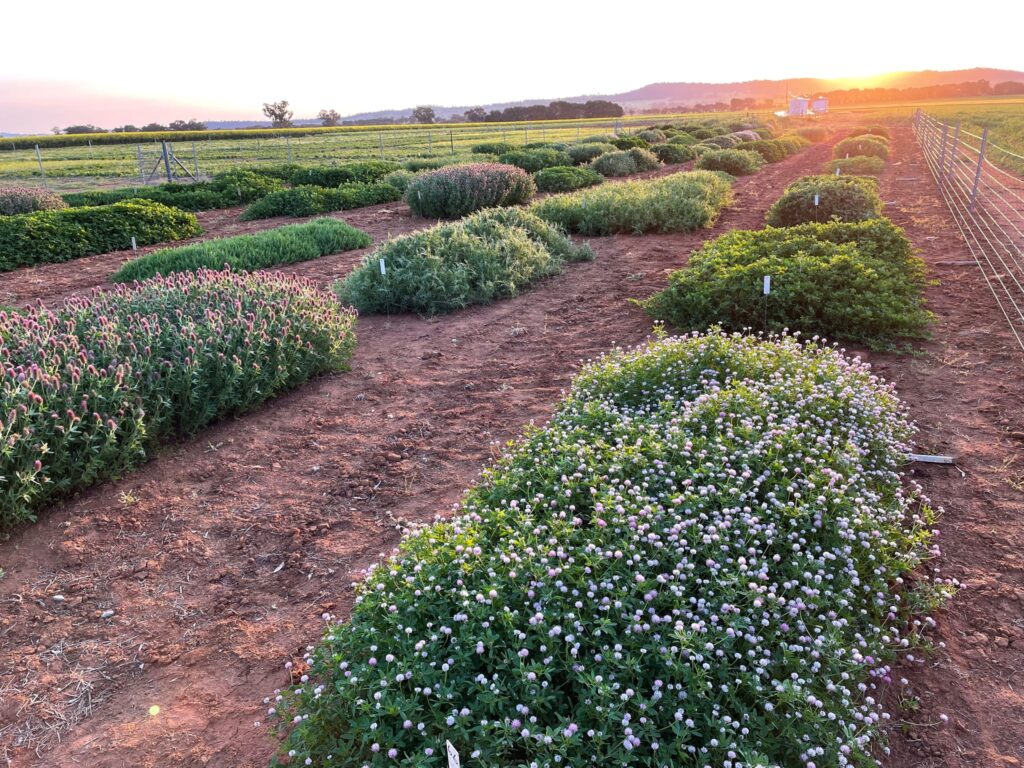Determining the impact of Varroa on virus transmission in Australian bees
This research aimed to contribute to ongoing surveillance of the Australian honey bee virus landscape as varroa establishes and spreads.
 HONEY BEE & POLLINATION
HONEY BEE & POLLINATION 
39 pages
Published: 9 Oct 2024
Author(s): Richard Hayes, Madlen Kratz, Matthew Newell, Carol Harris, Andrew Price, Guangdi Li
ISBN: 978-1-76053-525-4
Download report PDF
DownloadPurchase a hard copy - AUD $50
The Clover4Bees pilot study represents a significant step forward in understanding the potential of pasture legumes to benefit the Australian honey bee industry.
The project was initiated in response to broad-reaching events, such as drought, flood and bushfires, as well as increasing pressures on access to public lands. These challenges prompted the industry to explore opportunities to utilise floral resources on private lands more closely.
Pasture legumes, including some species with spectacular flowers, are vastly underutilised by the industry. The lack of awareness of their potential is due to two key factors. Firstly, none of the legume species used in Australia were developed in conjunction with beekeepers. Secondly, methods comparing the potential value to honey bees of small-flowered species were not readily available.
The Clover4Bees pilot study aimed to determine whether pasture legumes offered sufficient promise to justify continued investment by the industry, and inform priority areas for future research and development. The project established eight field experiments at four locations in 2022 and 2023, evaluating the flowering patterns of 23 species and observing apparent honey bee preference.
Woolly pod vetch, arrowleaf clover, balansa clover, gland clover, Persian clover and crimson clover were identified as the six species most likely to be of immediate use to the industry. Honey bees preferred these species across multiple sites and years, and the species had readily available seed. The study also highlighted the importance of collaboration with other key agricultural industries to develop a more pollinator-friendly agricultural landscape. Going forward, this collaborative approach will be essential for sharing resources and achieving widespread impact.
The Clover4Bees pilot study has laid a strong foundation for future work in developing pasture legumes for the Australian honey bee industry. The findings and recommendations provide valuable insights and a clear direction for future research and development efforts.